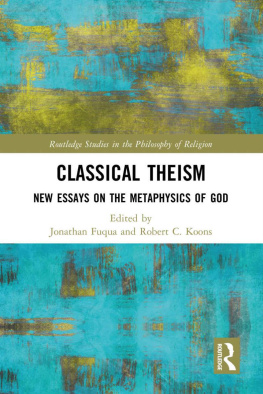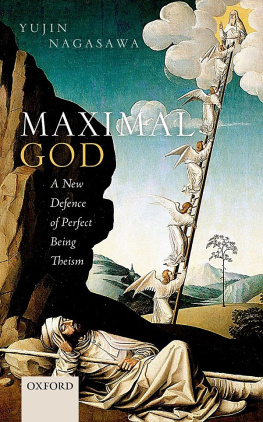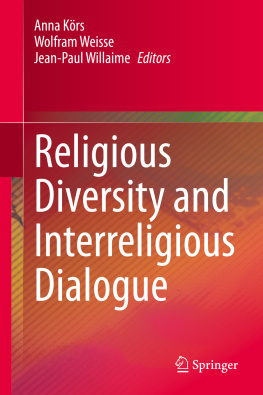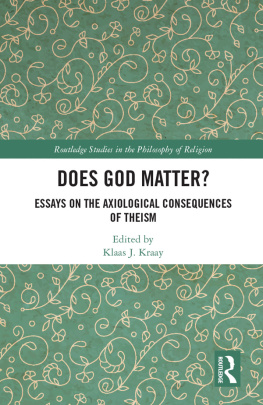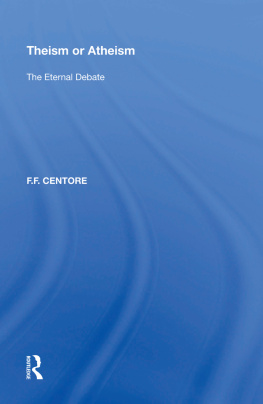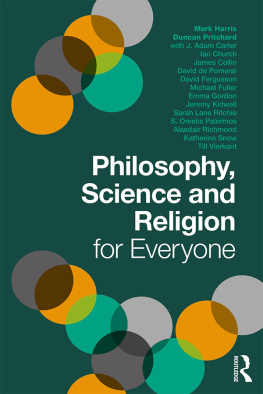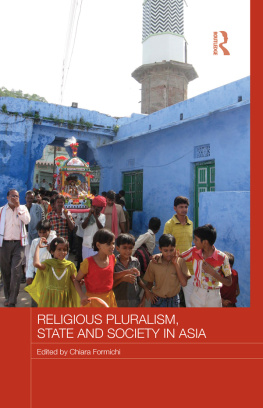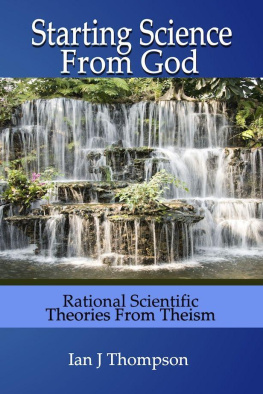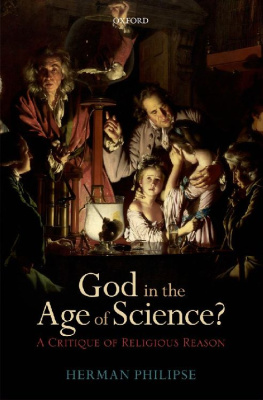Lehe - God, science, and religious diversity : a defense of theism
Here you can read online Lehe - God, science, and religious diversity : a defense of theism full text of the book (entire story) in english for free. Download pdf and epub, get meaning, cover and reviews about this ebook. year: 2018, publisher: Cascade Books, genre: Religion. Description of the work, (preface) as well as reviews are available. Best literature library LitArk.com created for fans of good reading and offers a wide selection of genres:
Romance novel
Science fiction
Adventure
Detective
Science
History
Home and family
Prose
Art
Politics
Computer
Non-fiction
Religion
Business
Children
Humor
Choose a favorite category and find really read worthwhile books. Enjoy immersion in the world of imagination, feel the emotions of the characters or learn something new for yourself, make an fascinating discovery.

- Book:God, science, and religious diversity : a defense of theism
- Author:
- Publisher:Cascade Books
- Genre:
- Year:2018
- Rating:4 / 5
- Favourites:Add to favourites
- Your mark:
- 80
- 1
- 2
- 3
- 4
- 5
God, science, and religious diversity : a defense of theism: summary, description and annotation
We offer to read an annotation, description, summary or preface (depends on what the author of the book "God, science, and religious diversity : a defense of theism" wrote himself). If you haven't found the necessary information about the book — write in the comments, we will try to find it.
Lehe: author's other books
Who wrote God, science, and religious diversity : a defense of theism? Find out the surname, the name of the author of the book and a list of all author's works by series.
God, science, and religious diversity : a defense of theism — read online for free the complete book (whole text) full work
Below is the text of the book, divided by pages. System saving the place of the last page read, allows you to conveniently read the book "God, science, and religious diversity : a defense of theism" online for free, without having to search again every time where you left off. Put a bookmark, and you can go to the page where you finished reading at any time.
Font size:
Interval:
Bookmark:
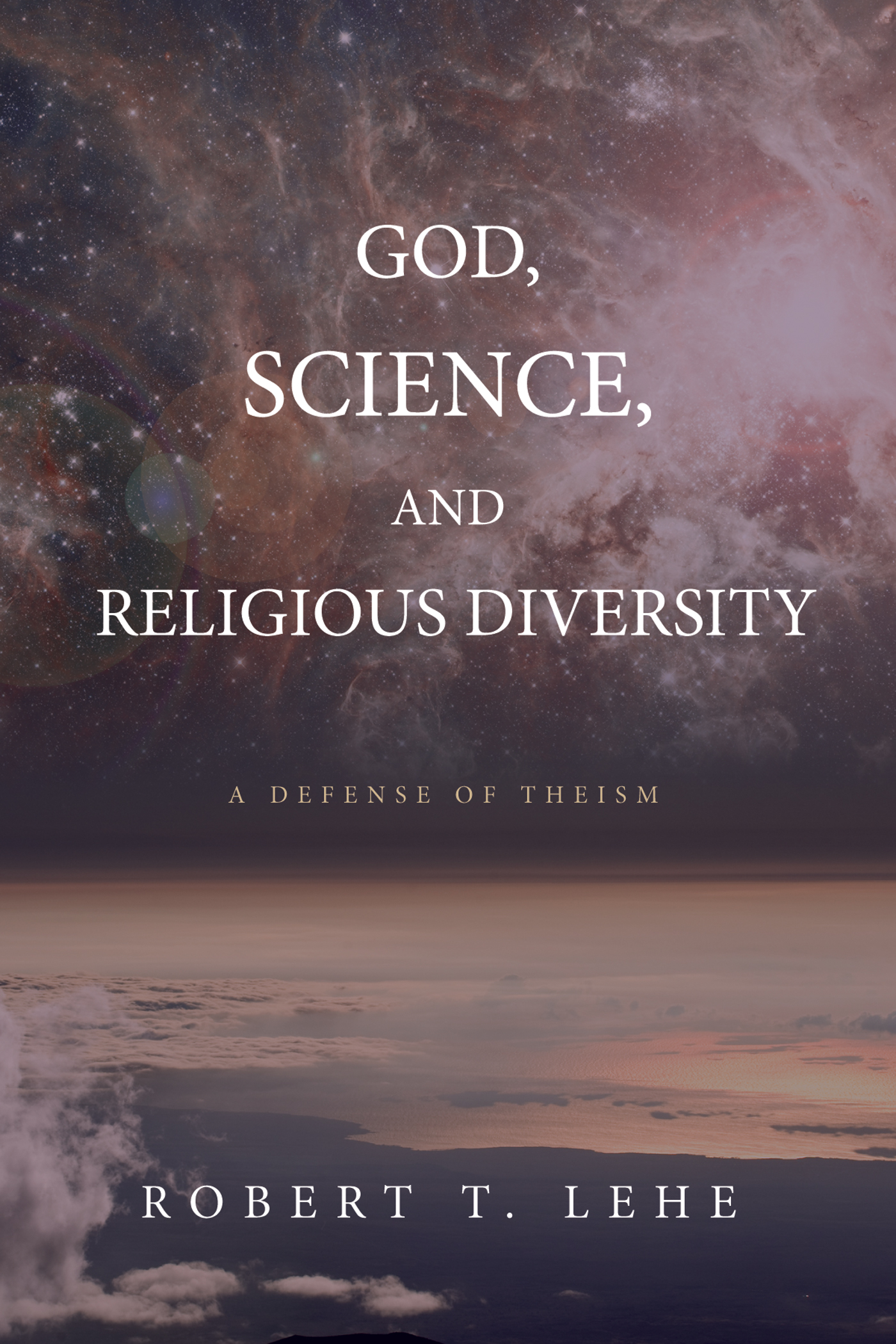
A Defense of Theism
Robert T. Lehe

I have been interested in the relation between religion and science since high school and in the problem of religious diversity since a college summer break I spent in Nagano, Japan, which included frequent visits to the great Zenkoji Temple. This book originates from several years of teaching a science and religion course at North Central College. The course was designed to satisfy a college requirement of an upper-level seminar that deals with intercultural issues, and so it includes an investigation of how different religions respond to modern science. The impulse to write this book came in part from a need for a textbook for the course that deals with some of the issues I wanted to examine, in a way that was both scientifically accurate and accessible to undergraduates and others interested in the relation between religion and science.
Two of the biggest obstacles to religious faith in the twenty-first century are the belief that religion is incompatible with science, and the problem of religious diversity with the apparently intractable disagreements between different religions about the nature of ultimate reality. Both issues arise from the contrast between the impressive success of science in giving us knowledge, and the apparent lack of rational means of justifying claims about any reality that is beyond the reach of science. Furthermore, the success of science extends even to the study of religion, and recent investigations seem to suggest that religion is a complex of phenomena that can be explained scientifically by anthropology and evolutionary psychology. This book addresses both of these challenges to faith and explores the relation between them. I argue that science and religion are not only compatible, but that some major, recent scientific discoveries support a theistic worldview. The diversity of religions is widely believed to undermine the credibility of religious belief because of the perpetual and intractable disagreements between different religions. I argue that one rational way to resolve disagreements between the claims of diverse religions is to assess their consistency with contemporary science. On this count I find theism superior to Buddhism, a major nontheistic religion, which has a rich tradition of rigorous engagement with science.
The Big Bang theory supports the proposition that the universe began to exist in the finite past. Recent valiant efforts by scientists to avoid the inference that the universe had a beginning or to find a satisfactory scientific explanation of the beginning of the universe have not succeeded in providing a more reasonable explanation than the Christian doctrine of creation ex nihilo . Recent discoveries that reveal an amazing degree of fine-tuning of the fundamental parameters of nature provide evidence that increases plausibility of belief that the universe was designed by a supremely intelligent creator. These scientific discoveries suggest that theism is better supported by contemporary scientific cosmology than the nontheistic metaphysical framework of Buddhism, with its commitment to an eternal, cyclical universe and the impossibility of a transcendent creator. The fact that theism is more harmonious with recent developments in scientific cosmology than nontheistic religions suggests that science can help us find ways of dealing with some of the disagreements between different religions.
This project could not have been completed without the help of friends and colleagues, to whom I owe huge debts of gratitude. Olin Joynton, Daniel Kolb, James Peters, and Marcia Lehe read early drafts of the manuscript and provided valuable feedback and suggestions for improvement. North Central College colleagues Paul Bloom, of the Physics Department, read and helped with the science chapters, and Brian Hoffert, of the East Asian Studies Program, provided feedback and suggestions on the Buddhism chapter. Physicist Jean Robert Lehe read a draft of the manuscript and provided much useful feedback about the scientific content. Former student and longtime friend Jonathan Matuzak proofread the manuscript and made numerous typo corrections and stylistic suggestions that improved the readability of the book. Former student Katelynn Moxon helped with proofreading. Thanks to North Central College for summer research grants to support the development of the science and religion course and the research for the book. Thanks to the journal Religious Studies for permission to republish my 2014 article, A Critique of Peter Byrnes Religious Pluralism, which constitutes a major part of chapter . Above all, special thanks to my wife, Marcia Lehe, without whose support and encouragement completion of the book would never have been possible, and whose editing, proofreading, and stylistic and substantive suggestions greatly improved the quality of the final product. Of course, I assume responsibility for whatever deficiencies remain.
T wo of the most serious challenges to Christian belief in contemporary Western societies are the thought that religion is incompatible with modern science and the belief that the diversity of religions undermines the credibility of their truth claims. The purpose of this book is to defend the plausibility of belief in the existence of the God of the Bible against these two challenges. Against the first, I argue that modern science is not only compatible with the existence of God, but that it favors theism over metaphysical naturalism, the view that only the natural world exists and that all phenomena are governed entirely by the laws of physics. For many people who are open to the idea that there is more in the world than what is discoverable and describable by modern science, acceptance of Christian theism is impeded by the second challengethe thought that the diversity of religions and lack of criteria for resolving disagreements between them undermines the credibility of any one religion over the others, and that consequently, it is no longer feasible for an intelligent, well-educated person to believe in the existence of the God of the Bible. These two reasons to be skeptical of the religions of the Bible are interconnected. The growth of scientific naturalism has made it difficult for many people to take seriously the supernatural aspects of biblical religion and has undermined the credibility of appeals to miracles and the resurrection of Jesus as supports for belief in the God of the Bible. As cultural phenomena, religions seem explainable by the methods of anthropological and psychological research, and so from the point of view of the social sciences, the truth claims of no one religion seem any more credible than those of any other. All religions seem to be constructs of particular cultures and more or less equally valid interpretations of the world and the place of humanity in the world. For a growing number of people it is no longer plausible to think of any one religion as offering the ultimate truth about the universe and the human condition. This book examines these challenges to theistic belief posed by modern science and the problem of religious diversity and defends the plausibility of belief in God in response to these challenges. I defend Christian theism as a worldview against critiques based on naturalism and religious pluralism.
The book has two main theses. The first is that modern scientific cosmology is not only compatible with religious interpretations of reality but that it adds to the credibility of Christian theism. The second thesis is that consideration of how effectively different religious traditions harmonize their beliefs with modern science turns out to be helpful in the attempt to adjudicate conflicting truth claims between diverse religions. Since Buddhism is a religious tradition with an especially rich intellectual heritage, which has grappled with modern science and the relation between science and religion, I examine and compare the responses of both Buddhism and Christian theism to modern scientific cosmology. I argue that Christian theism is more harmonious with modern scientific cosmology than the nontheistic Buddhist metaphysical framework, and that this fact increases the plausibility of the Christian theistic worldview over a Buddhist worldview.
Font size:
Interval:
Bookmark:
Similar books «God, science, and religious diversity : a defense of theism»
Look at similar books to God, science, and religious diversity : a defense of theism. We have selected literature similar in name and meaning in the hope of providing readers with more options to find new, interesting, not yet read works.
Discussion, reviews of the book God, science, and religious diversity : a defense of theism and just readers' own opinions. Leave your comments, write what you think about the work, its meaning or the main characters. Specify what exactly you liked and what you didn't like, and why you think so.

